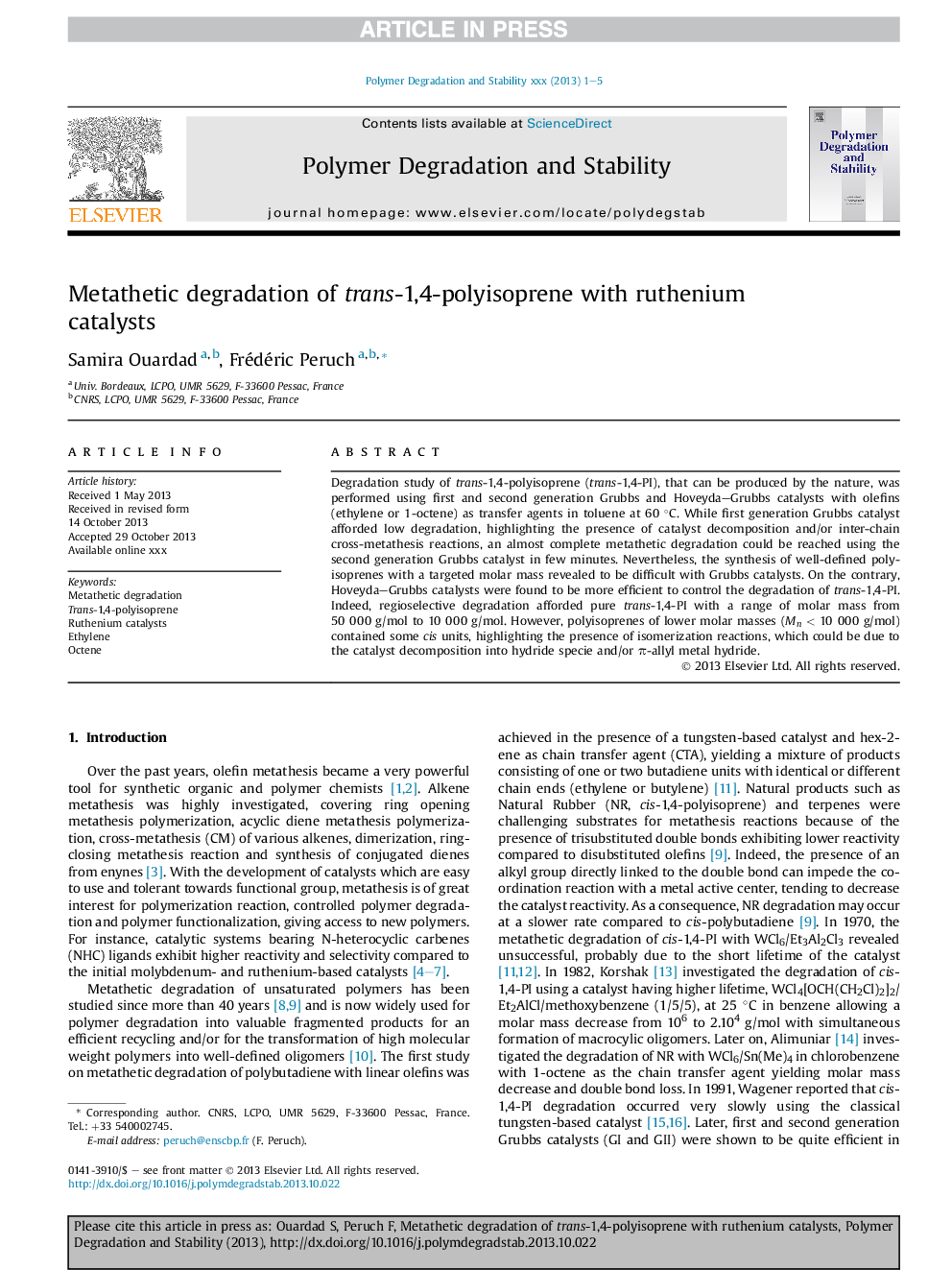| Article ID | Journal | Published Year | Pages | File Type |
|---|---|---|---|---|
| 5202111 | Polymer Degradation and Stability | 2014 | 5 Pages |
Abstract
Degradation study of trans-1,4-polyisoprene (trans-1,4-PI), that can be produced by the nature, was performed using first and second generation Grubbs and Hoveyda-Grubbs catalysts with olefins (ethylene or 1-octene) as transfer agents in toluene at 60 °C. While first generation Grubbs catalyst afforded low degradation, highlighting the presence of catalyst decomposition and/or inter-chain cross-metathesis reactions, an almost complete metathetic degradation could be reached using the second generation Grubbs catalyst in few minutes. Nevertheless, the synthesis of well-defined polyisoprenes with a targeted molar mass revealed to be difficult with Grubbs catalysts. On the contrary, Hoveyda-Grubbs catalysts were found to be more efficient to control the degradation of trans-1,4-PI. Indeed, regioselective degradation afforded pure trans-1,4-PI with a range of molar mass from 50 000 g/mol to 10 000 g/mol. However, polyisoprenes of lower molar masses (Mn < 10 000 g/mol) contained some cis units, highlighting the presence of isomerization reactions, which could be due to the catalyst decomposition into hydride specie and/or Ï-allyl metal hydride.
Related Topics
Physical Sciences and Engineering
Chemistry
Organic Chemistry
Authors
Samira Ouardad, Frédéric Peruch,
